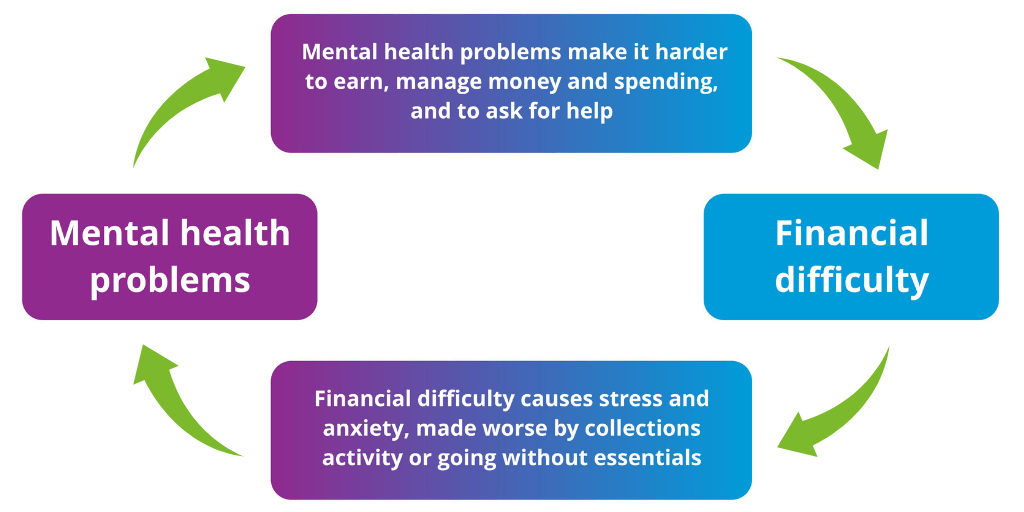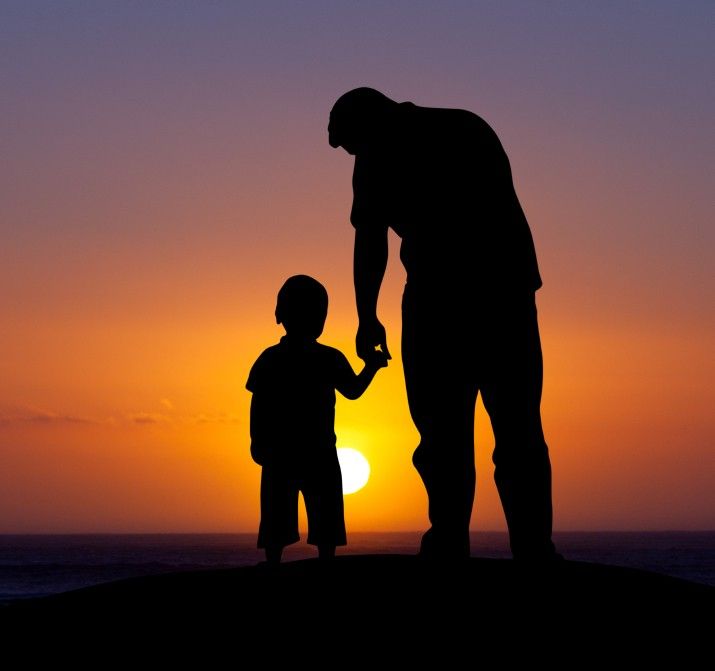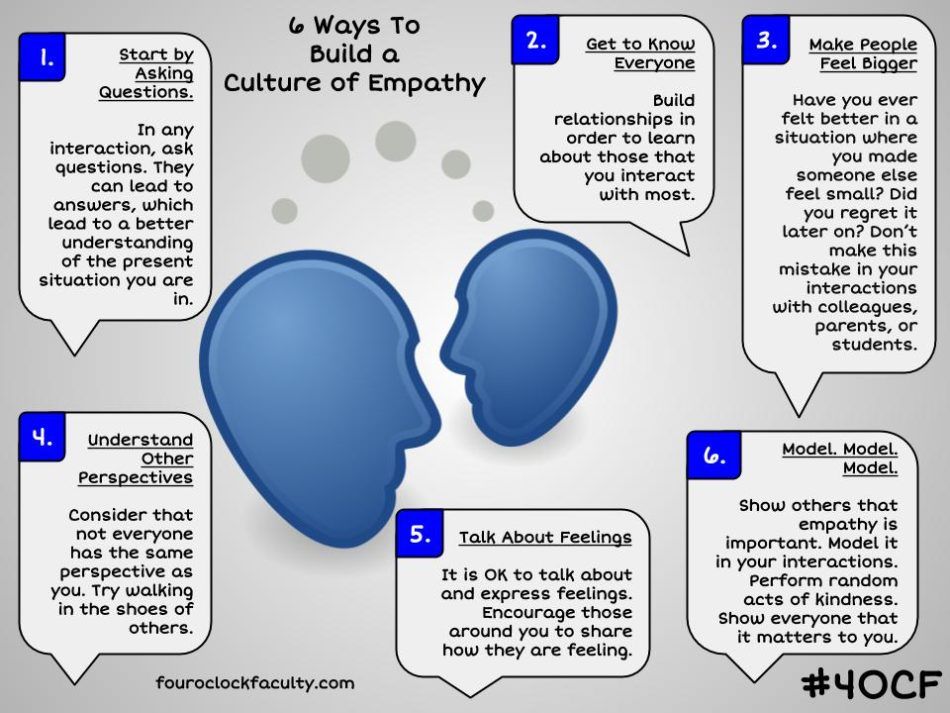Cycle for mental health
Top Mental Benefits of Cycling
Skip to content Top 7 Mental Health Benefits of CyclingWhen we discuss the many health benefits linked to cycling, almost every article highlights the physical advantages of riding a bicycle. While the physical health benefits are certainly noteworthy and abundant, it is important to recognize the fact that cycling is really great for your brain too. The mental and psychological benefits of cycling are legitimate yet incredibly under-publicized. In today’s stressful working environment, people are often looking for ways to relax their minds and take a break from the daily hustle that causes stress. From work drama to family issues, the list of daily anxieties goes on and on. Cycling, however, is an excellent way to curb these common stressors for all types of people.
Whether you choose to cycle to get fit, for competitive purposes, or even for social reasons, riding a bicycle regularly is an excellent way to keep your mind and body happy. Let’s take a look at the mental benefits of cycling:
1. Reduces stress
Let’s face it, life can be really demanding sometimes. Getting out on your bicycle every day helps to reduce these stresses. Not only has it been proven that cardiovascular exercise helps to reduce stress and ease anxiety, but cycling, in particular, has been said to benefit the rider’s overall state of mind.
2. Reduces risk of depression
The sheer enjoyment of riding a bike can be enough to ease the mind of some of its demons and reduce the risk of depression and mental illness.
3. Helps you sleep better
Riders are able to get their circadian rhythm in sync by riding regularly. In addition, cycling can help to reduce levels of cortisol in the body which is a stress hormone that may block regenerative, deep sleep. It also can positively affect brain serotonin which can improve your sleep cycles.
4. Improves your memory
As aging sets it, it is often difficult to maintain a sharp memory.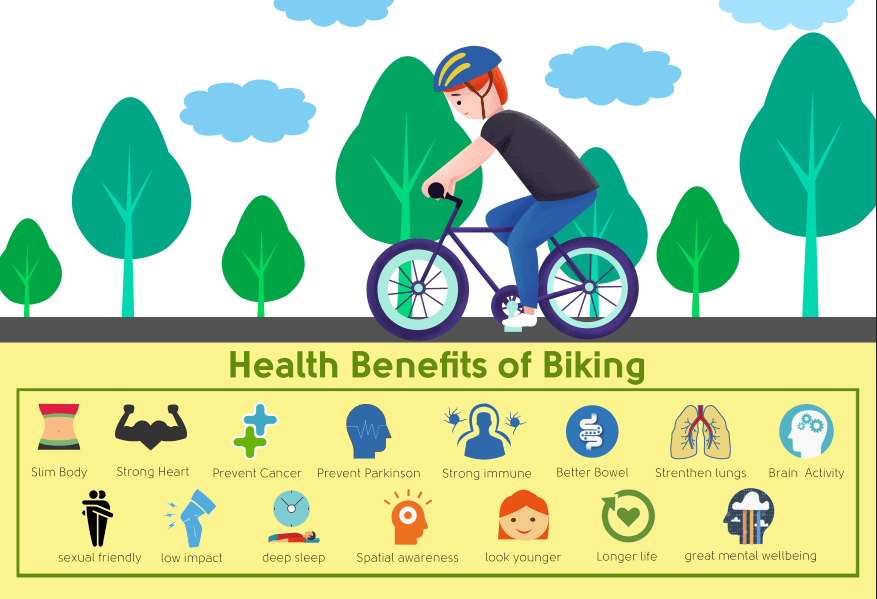 Riding a bike helps to build new brain cells in the hippocampus, this is the region of the brain responsible for a person’s memory.
Riding a bike helps to build new brain cells in the hippocampus, this is the region of the brain responsible for a person’s memory.
5. Helps you feel good
People who choose to cycle instead of drive gain a sense of pride by helping save the environment. Reducing your carbon footprint and avoiding adding to the world’s pollution does a wonder for making you feel good about yourself. Cyclists enjoy the benefits of a “cycling high”. Similar to a “runner’s high”, cyclists often note that the endorphins that come from the physical exercise of riding a bike make them feel happy.
6. Improves creative thinking
All kinds of artists and musicians take a bike ride when they are suffering a mental block. The ability to exercise while getting fresh air helps to sharpen problem-solving skills as well as creativity. Avid cyclists note that they have an addiction to riding. This positive addiction is a great way to refocus your mind’s energy into a positive place.
7.
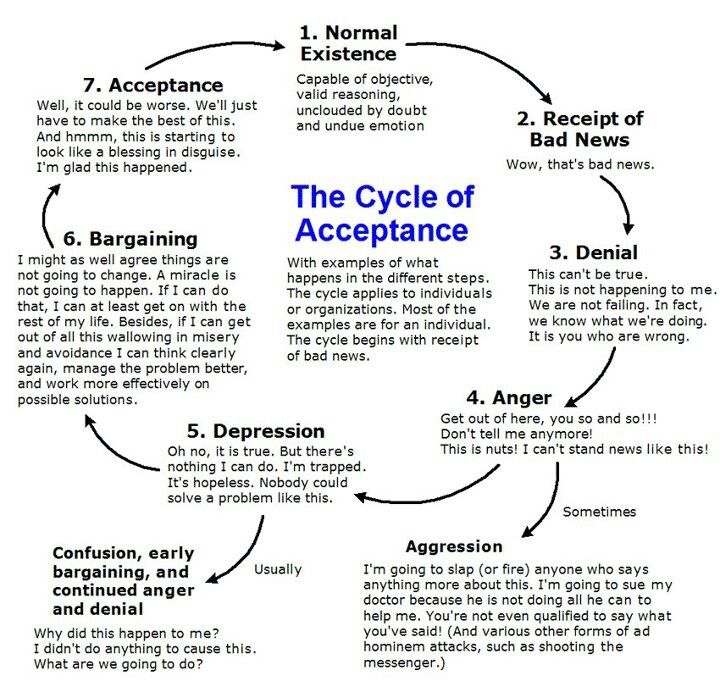 Helps boost productivity
Helps boost productivityRecent studies have suggested that employees who bike to work are more productive. In addition, a quick afternoon bike ride can boost your energy levels and help you have a more productive evening.
Cycling is a great sport for many reasons. Giving your mind that extra boost of positivity is important for your overall happiness. The psychological and mental advantages of riding a bike regularly are something that really helps maintain cheerfulness in our daily lives.
Do you ride for exercise or for the mental benefits of cycling? Please share your opinions below.
[]
Get Help Now
Nameyour full name
Commentsmore details
keyboard_arrow_leftPrevious
Nextkeyboard_arrow_right
Bill Bone is passionate about cycling as a sport and hobby. He is the title sponsor of the Bill Bone Pro-AM, the Bill Bone 5K, and a number of other cycling events.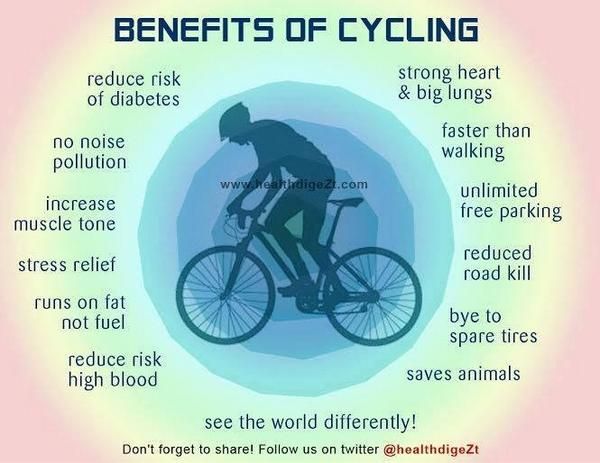 He has combined his skills as a personal injury lawyer with the desire to help cyclists get the legal help they deserve in South Florida.
He has combined his skills as a personal injury lawyer with the desire to help cyclists get the legal help they deserve in South Florida.
Go to Top
the exercise for positive mental health
While virtually all exercise is beneficial for general, ‘whole body’ health, cycling is especially great for positive mental health.
While virtually all exercise is beneficial for general, ‘whole body’ health, there are some forms of exercise that are especially great for positive mental health.
We often write about the benefits of exercise for physical and emotional health. Several studies have found that the combination of exercise and exposure to the outdoors is a bit of a magic combination for emotional and mental health – it’s now considered to a key therapeutic component of any strategy to combat depression, anxiety, and stress. Cycling comes up again and again as particularly useful for positive mental health – it’s easily accessible to most of us and the rhythmic, aerobic and low impact nature of cycling, much like other motor skills, has known brain boosting benefits.
“Physical and emotional health is now considered to a key therapeutic component of any strategy to combat depression, anxiety, and stress.”
Best of all, it’s easy and convenient, especially for city dwellers. It can be easily incorporated into your daily routine by using a bike for your daily commute to work or a quick dash to the nearby shops. Avoid traffic, get a fresh perspective of your city and often save time!
Of course, many people who cycle do it simply because it makes them happy, which is not something to be taken lightly. Beyond the ‘happiness factor’ and the general mental health benefits of exercise which we have discussed here, though are a host of specific benefits that recommend cycling as the part of your ‘first aid kit’ for mental health.
Cycling for positive mental health
- It improves your mood. Regular cyclists often talk about the “cycling high”, cousin to the well-recognised “runner’s high”.
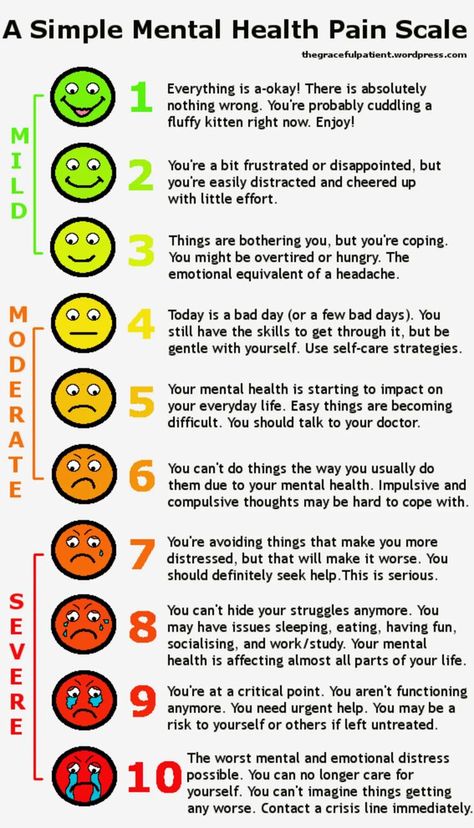 Cycling pumps blood around your body at a greater rate which allows for the rapid spread of endorphins and other good substances like dopamine, norepinephrine and serotonin.
Cycling pumps blood around your body at a greater rate which allows for the rapid spread of endorphins and other good substances like dopamine, norepinephrine and serotonin. - It promotes positive mental health. Self-Esteem, depression, anxiety and stress are all positively affected through exercise, but the nature of cycling has been shown to be one of the most effective activities for the head and heart.
- It helps you sleep better. Regular riding helps synchronise your circadian rhythm and can help to reduce levels of stress hormones that can make proper regenerative, deep sleep difficult.
- Improves your memory. Riding a bike helps to build new brain cells that are responsible for memory. See the ‘your brain on biking’ section later in this piece for more
- Improves creative thinking. The regular, uniform movement of cycling has a relaxing effect on the brain, stabilizing both physical and mental function.
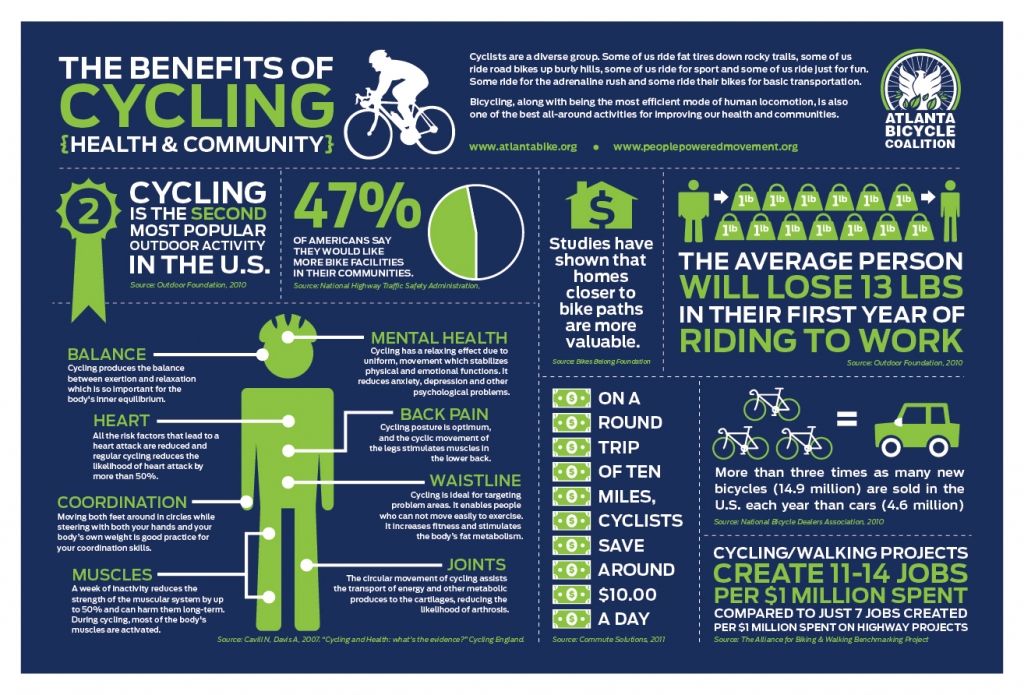
- Cycling promotes new thought patterns that promote feelings of calm and wellbeing. It can be a great way to “zone out,” but you can even use it for a form of meditation. Tip: Concentrate on the actions, each movement of your legs, the rhythm of your breathing, the wind on your face. Focus only on the physical sensations and actions of riding and you may be surprised just how easily your mind clears.
- It may benefit your (ahem) bedroom activities. Cycling exercises the same key muscles we use when making love, so…
Your Brain on Biking
Cycling can grow your brain in the same way it can grow your muscles. Blood flow to the brain increases just as it does with the muscles, bringing in more oxygen and nutrients that can improve its performance.
Riding increases the production of proteins used for creating new brain cells by two or three times the norm! It also increases the activities that allow the different regions of our brain to communicate more effectively.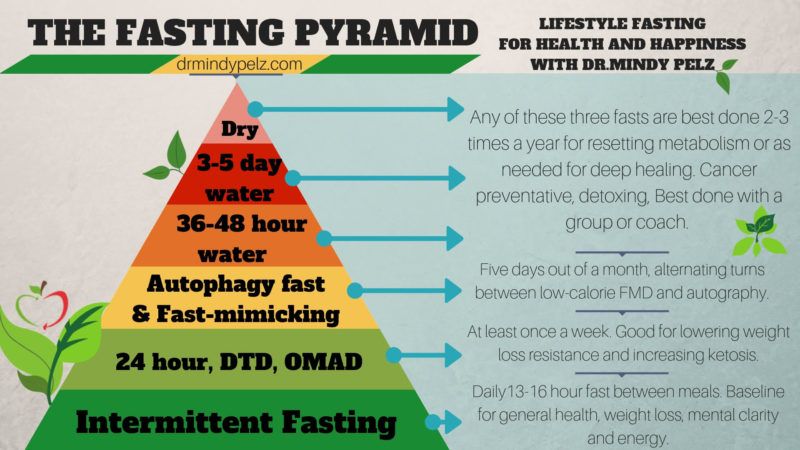
Cycling has also been shown to counteract the natural decline of brain function and development as we age.
Social benefits
Cycling lends itself quite easily to joining a group of like-minded people, as former Australian Rugby professional Mat Rogers recently advised – “I think that blokes in a cycling bunch would be the least depressed of any group of men because they get stuff off their chest, they talk, and they don’t feel like they’re getting looked down on or judged.”
How often to cycle to get the benefits
Scientists suggest that 30-60 minutes of steady riding at a good pace (no sprinting!) is a good balance. Maintaining a heart rate at roughly 75% of our maximum is also suggested. Three to five sessions a week is enough to get those benefits flowing. It’s an easy and enjoyable addition to your mental health first aid kit.
Further information on the benefits of cycling
- Bicycling For Life
- The Amazing Way Bicycles Change You
- Are Weekend Warriors The Healthiest Cyclists?
- Middle Aged Men in Lycra film
- A great infographic with lots of information about all things cycling from 16best.
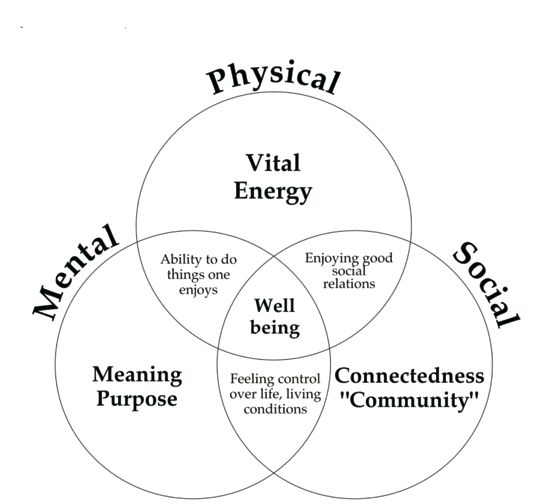 net
net
If you need someone to talk to, MensLine Australia professional counsellors are here to provide information and support 24 hours a day, seven days a week.
Call us on 1300 78 99 78 or access online counselling.
More from men's mental health
FilterCommunicationLonelinessOverwhelmedPanic attackProviding supportPTSDSelf-helpSignificant daysWhat isWork
What are the symptoms of a panic attack?
A panic attack is an occurrence of strong anxiety and fear (and accompanying physical reactions) that seems to happen without an obvious cause. Panic attacks are a result of our ‘fight or flight’ instinct engaging, without the threat of immediate physical danger being present.
Read more
What are the symptoms of a panic attack?
A panic attack is an occurrence of strong anxiety and fear (and accompanying physical reactions) that seems to happen without an obvious cause. Panic attacks are a result of our ‘fight or flight’ instinct engaging, without the threat of immediate physical danger being present.
Panic attacks are a result of our ‘fight or flight’ instinct engaging, without the threat of immediate physical danger being present.
Read more
Benefits of volunteering
Many people who volunteer know the great feeling associated with helping others, but what people may not know are the proven benefits on overall health and happiness. Volunteering offers countless social, mental and physical health benefits. Here we outline some of the profound impacts of volunteering.
Read more
The power of a good support network
Having a good support network is a vital tool in maintaining your mental health and wellbeing. As social creatures, our relationships and connections are a basic and core need, behind only physical and safety needs in importance.
Read more
Making a safety plan
A safety plan helps to get you through the tough moments when experiencing suicidal thoughts or feelings.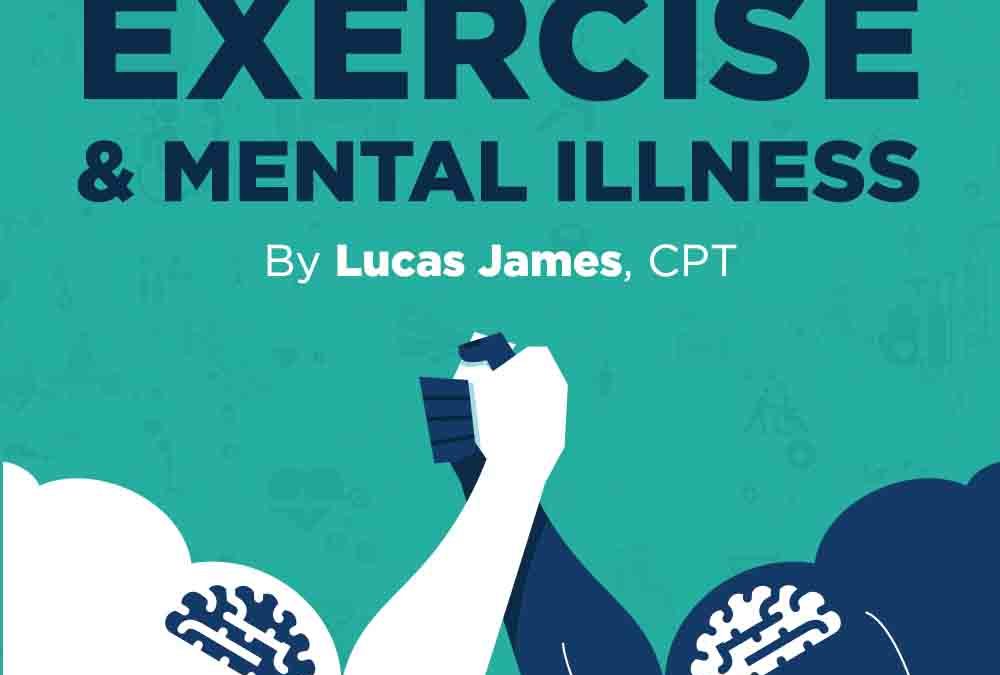 Here MensLine Australia outlines the prompts required to help you work through the steps of your personal safety plan until you feel safe.
Here MensLine Australia outlines the prompts required to help you work through the steps of your personal safety plan until you feel safe.
Read more
Helping a mate who is suicidal
It can be hard for some men to express their feelings. They may be embarrassed or worried they’ll be seen as weak. Here MensLine Australia explores ways you can help a mate who may be experiencing feelings of suicide.
Read more
The power of a good support network
Having a good support network is a vital tool in maintaining your mental health and wellbeing. As social creatures, our relationships and connections are a basic and core need, behind only physical and safety needs in importance.
Read more
Making a safety plan
A safety plan helps to get you through the tough moments when experiencing suicidal thoughts or feelings.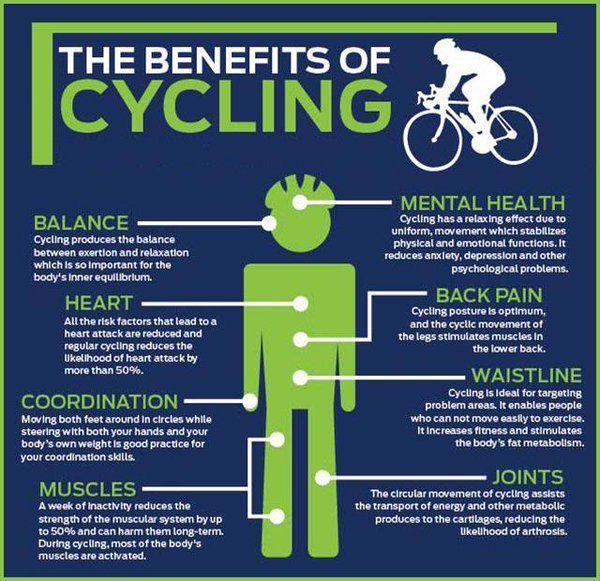 Here MensLine Australia outlines the prompts required to help you work through the steps of your personal safety plan until you feel safe.
Here MensLine Australia outlines the prompts required to help you work through the steps of your personal safety plan until you feel safe.
Read more
Helping a mate who is suicidal
It can be hard for some men to express their feelings. They may be embarrassed or worried they’ll be seen as weak. Here MensLine Australia explores ways you can help a mate who may be experiencing feelings of suicide.
Read more
View more
Mental health in the human life cycle
05 August 2016
Different approaches to mental health must be taken into account throughout the life cycle of a person. The quality of mental health at one stage of life can have both a positive and a negative impact at another stage.
What are the main factors (including biological, psychological, socio-cultural and economic) for each stage of the human life cycle?
What national/global strategies/initiatives can benefit a person's mental health at each stage of their life cycle: pregnancy, birth, infancy, childhood, adolescence, adolescence, adulthood, old age?
The plenary session will include discussions where experts will present differentiated approaches to maintaining mental health at each stage of the human life cycle.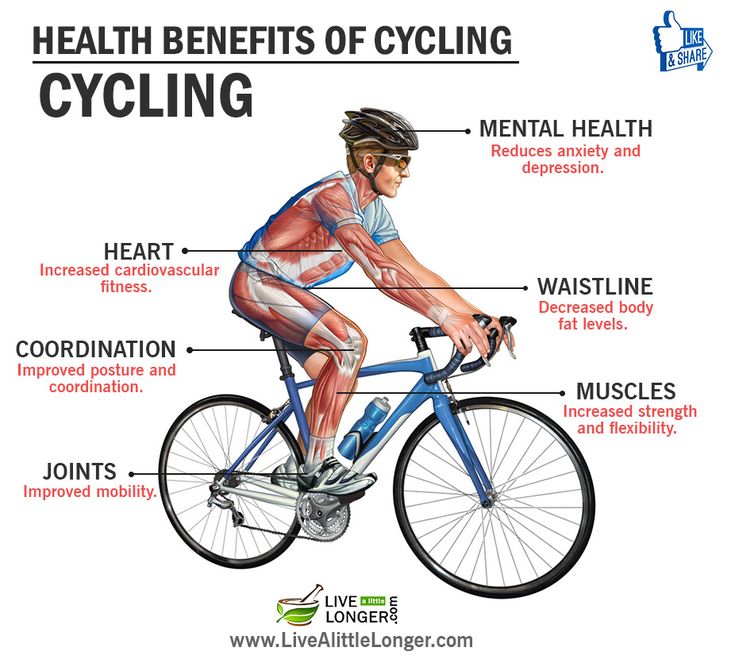
Plenary meeting 1. Mental health: Childhood and adolescence
Plenary meeting 2. Mental health in adulthood
Plenary health 3: Mental health of elderly people 9000 9000
Lituations and conclusions. recommendations will be included in the text of the Congress Declaration.
Full version of the Scientific Program of the Congress HERE
Share news
Previous news Next news
II Scientific and Practical Conference in memory of A. L. Igonin "Narcology and Law"
25 November 2022
WHO Mental Health Forum report
25 November 2022
Results of the All-Russian competition of student projects
10 November 2022
October - Mental Health Month
VII All-Russian online interuniversity scientific and practical conference "Protection of the mental health of children, adolescents and youth"
09 November 2022
Development of educational and methodological support for the prevention of the risk of suicidal behavior in adolescents
08 November 2022
October - mental health month
Hotline of the Kursk State University for providing psychological assistance to student youth
07 November 2022
October - mental health month
Pro Resilience and Mental Health
01 November 2022
October - mental health month
Development of emotional intelligence
27 October 2022
October - mental health month
I AM IN CONTROL OF MY LIFE
26 October 2022
Results of the All-Russian Scientific and Practical Conference "Law and Mental Health: How to Reach Consensus"
24 October 2022
Biological cycle and mental cycle ‹ Glossary of terms ‹ Slavic Association of Ontopsychology
Ciclo biologioco e ciclo psichico
The biological cycle, or biogenesis, is a pre-established order maintained by life itself in order to maintain the species.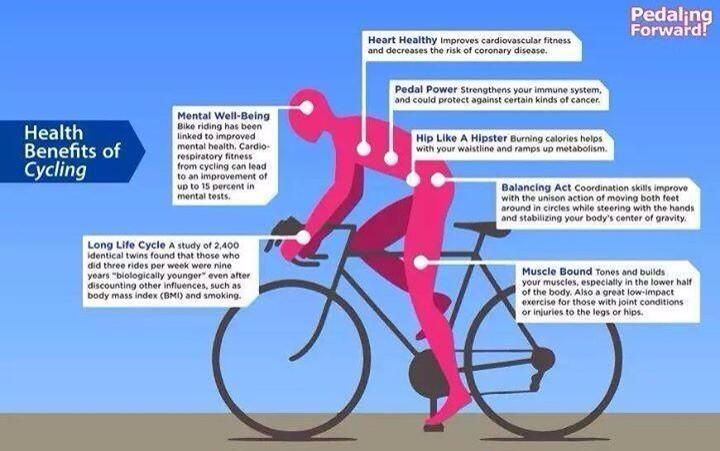 Like what happens in the animal and plant world, the fundamental instincts of the biological cycle serve to preserve the whole species and the individual. This is a dimension in which a person is destined to be born, reach physiological maturity, produce offspring and die, having fulfilled family duty. The biological cycle is subject to the highest existential hierarchy, being an integral part of the life order. The biological cycle resumes its repetition: a living being works to preserve life as it has been given to him, and pass it on unchanged to the next generation.
Like what happens in the animal and plant world, the fundamental instincts of the biological cycle serve to preserve the whole species and the individual. This is a dimension in which a person is destined to be born, reach physiological maturity, produce offspring and die, having fulfilled family duty. The biological cycle is subject to the highest existential hierarchy, being an integral part of the life order. The biological cycle resumes its repetition: a living being works to preserve life as it has been given to him, and pass it on unchanged to the next generation.
In fact, due to the intervention of the deviation monitor, most people are defective in terms of the biological cycle of nature. The feeling of longing and existential schizophrenia indicate that a person clearly does not live up to the natural norm. Diseases and disorders of various kinds prove biological immaturity, lack of precision in terms of health.
Psychic cycle, or noogenesis, means the penetration into the world of causes that generate systems. With his mind, the subject surpasses the biological cycle and gains access to the “control center”, in which various systems of our planet are programmed. A person of the mental cycle is equal to the coordinates that go beyond the limits of himself and the environment: transcendental activity is immanent to him.
With his mind, the subject surpasses the biological cycle and gains access to the “control center”, in which various systems of our planet are programmed. A person of the mental cycle is equal to the coordinates that go beyond the limits of himself and the environment: transcendental activity is immanent to him.
While the actions of a person of the biological cycle, in whatever situation he is, are always fixed on the reproduction of his own species; the person of the mental cycle must go in the exact direction.
The man of the biological cycle puts affective, sexual questions, moments of possession of people and things on the map of life; the man of the psychic cycle transcends all this: what really matters to him is only the ability of the mind to freely perform the higher functions.
The man of the biological cycle needs only reliable shelter and nourishing food, the stability of his position: slave psychology makes him a man of the vicious circle of the system.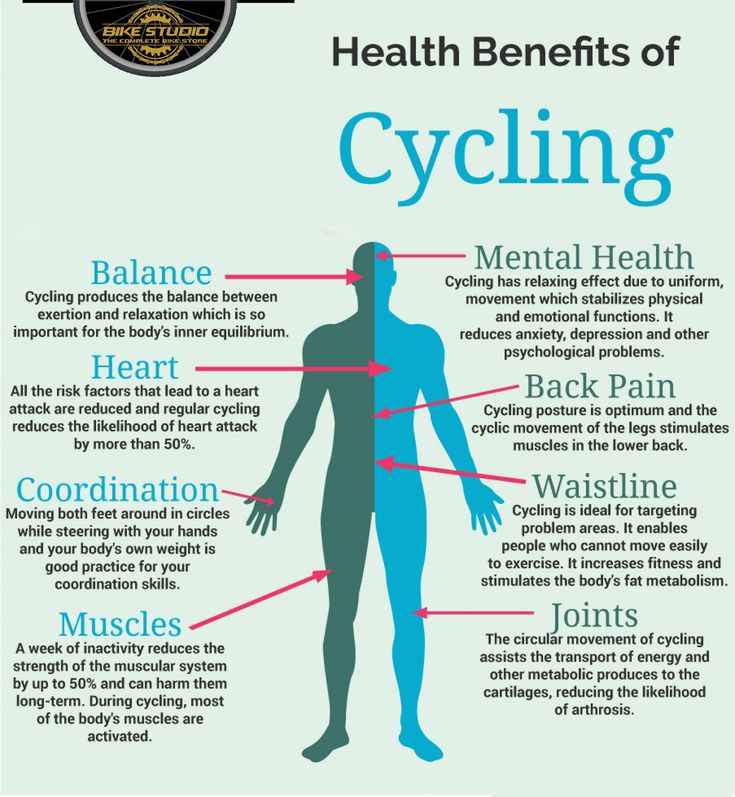 The man of the mental cycle strives to constantly transcend the limits and storm the metaphysical heights.
The man of the mental cycle strives to constantly transcend the limits and storm the metaphysical heights.
In order to identify himself, a person of the biological cycle must “have”, and a person of the mental cycle needs transcendent substantiality, all his development is directed towards being.
Becoming within the psychic cycle requires making a series of creative choices in order to achieve progressive growth. True historical autoctis is creative (creativo) self-positing. "Create" (creare) means: to bring the novelty of being (and therefore positive novelty), always proceeding from the virtuality of one's own original and currently unfolding project.
The state of fullness achieved by a person of the mental cycle through precise actions is not an end in itself: it must be overcome. The highest experience should be lived as a gift and an expansion of the horizons of one's being, that is, from the achieved fullness, one must pave a new path, make one's new history: the novelty of power, the novelty of history.